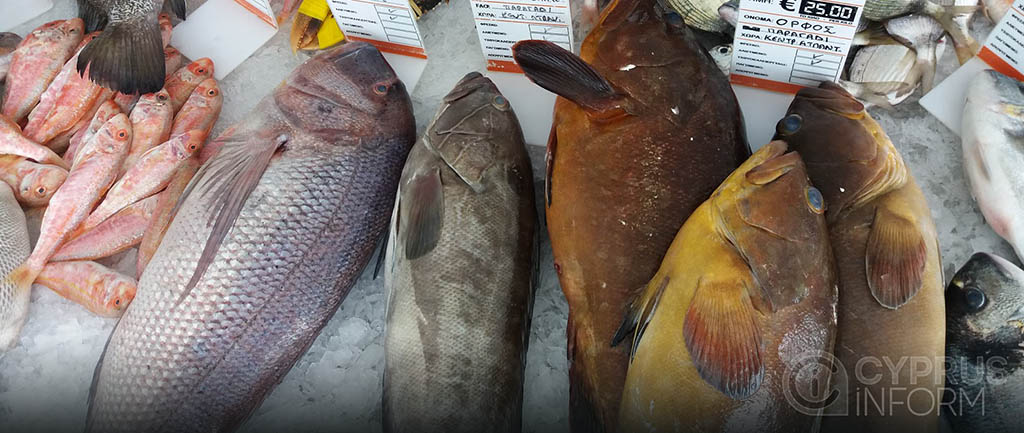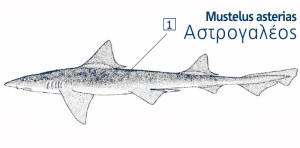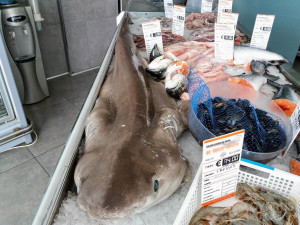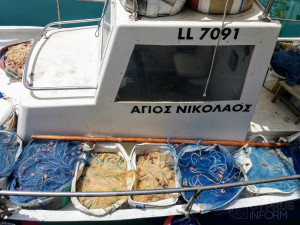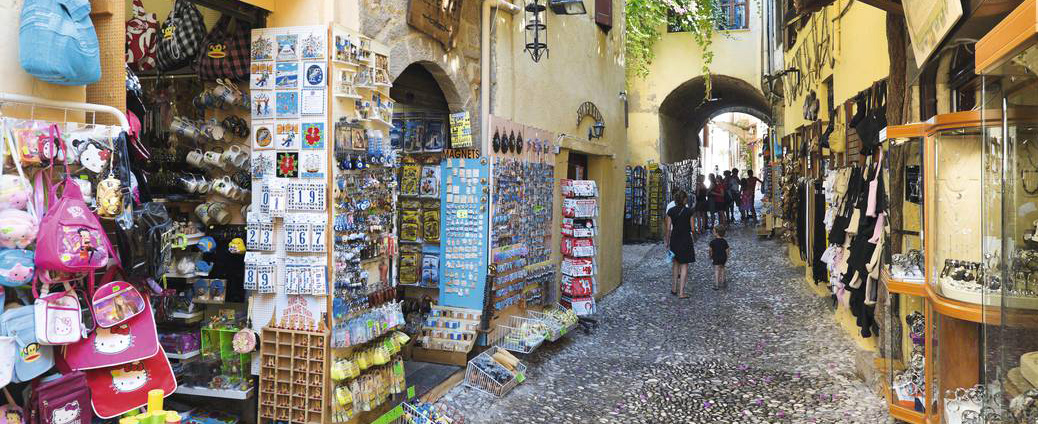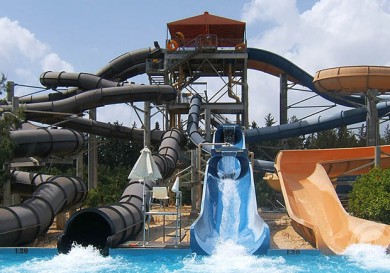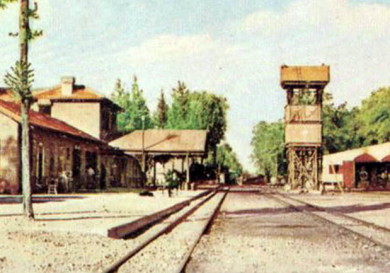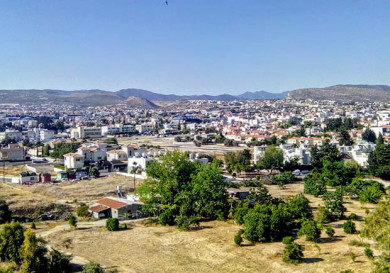Fishermen’s tales: sharks, news and some history
Every year, Cyprus newspapers, TV and Internet portals are shaken by regular reports of sharks being seen in local waters. Regardless of whether it is a true story, many eyewitnesses and “experts” immediately announce that the shark they have seen or seemed to see was definitely a white shark. Apparently, the almost forgotten “Jaws” movie still fascinates those dreaming of fame and publicity thanks to the thrilling sensation.
In reality, the spotted “shark”, usually turns out to be a seal, dolphin or plastic debris. Still, sharks certainly can be found in local waters from time to time. Sometimes sharks end up in fishermen nets and later in the fish markets. In the menu of some Cypriot favourite taverns and restaurants it is also possible to find shark delicacies.
Some species of hound shark family, which are not so well-studied, are being regularly caught in the fishermen nets. Even though sharks are not being targeted by fishermen purposely, the caught specimens go for sale quite well.
Unlike many of other shark family species, which require special culinary skills to be cooked, meat of hound sharks is quite similar to any other sea fish and is easy to turn into a delicious dish. A famous shark fin soup is also usually made from sharks from hound shark family.
A shark you see in the photo was caught off the Limassol coast and did not cause any stir in the media. Together with another shark, it will soon be cut to pieces and sold at 14 euro per kilogram. By the way, this is one of the lowest prices for seafood, caught in local waters.
Anything cheaper than 10 euro, with the exception of small unmarketable fish, is a product of sea-farming. So, famous dorado (Tsipura) and sea bass (Lavraki), lying on the shelves at the supermarkets and even being offered in specialized fish shops, which are called psaragoras (ψαραγορά), are all coming from sea farming basins, regardless of price and size.
Fishing in Cyprus
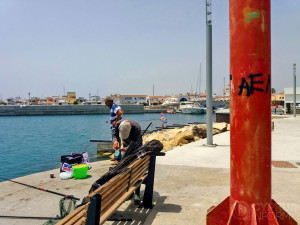 Since we have started talking about fish farms, we must mention quite common accidents, which happen even more often than reports of scary sharks waiting for swimmers at the city beach.
Since we have started talking about fish farms, we must mention quite common accidents, which happen even more often than reports of scary sharks waiting for swimmers at the city beach.
Supporters of traditional fishing methods view fish farming businesses as their direct competitors. They often approach fish farming basins after dark and cut nets, which protect fish tanks.
Dozens of tons and hundreds of thousands of baby fish are being released to the sea waters, where they later will be caught by the “traditional” fishermen.
Fishing with rod is allowed in Cyprus and does not require obtaining a license or a permit. This is why lots of people, who are hoping for a massive catch in a short time, are occupying beaches, breakwaters and piers.
Cyprus fishing
Despite of the significant damage the fishing industry of the Eastern Mediterranean has suffered in the 60s of the last century due to the construction of the Aswan Dam and, in case of Cyprus, also because of the war in 1974, the traditional fishery, once forming a significant share of local economy revenues, has survive bad times and continues to exist and develop at its own pace.
Of course, the scale of traditional fishery today can not be compared with the times, when Limassol was the centre of small-tonnage fishing vessel construction industry, where different fishing boats – from longboats to schooners were built. Nevertheless, wild fish from local waters is always available for purchase; the price though will be slightly higher comparing to farmed or imported fish.
This should be remembered when choosing fish delicacies from the menu of a fish tavern. Low price can mean that you are buying cultivated or frozen Asian fish. The best solution is to choose fish taverns, which have a good reputation and are recommended by locals.
It is possible to see wild Mediterranean fish when looking down in the water from the pier or numerous walking platforms, located along Limassol coastline. Fishermen also know about it and make their way with the fishing rods even to the most secluded spots of the bay, ignoring the “no entry” sign and chasing their dream catch.




